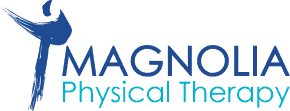Nobody expects to feel stabbed when they get out of bed in the morning, but that’s exactly what people with plantar fasciitis experience the moment their heels touch the floor. Fortunately, there’s non-surgical help for this painful foot condition.
What is plantar fasciitis?
When the band of tissues nearest your heel bone become inflamed, those first steps in the morning can produce the telltale “stabbing” pain of plantar fasciitis. If the pain decreases as you continue walking, that’s another clue that plantar fasciitis is the culprit. The condition arises through small tears in the tissue in your feet (plantar fascia) that help absorb the shocks of walking and running.
Too much physical stress can overcome this tissue band’s ability to act as shock absorbers, and small tears appear, leading to inflammation and pain. Athletes are most likely to inflict this extra stress on their plantar fascia, but extra weight, long hours on your feet and even aging can also lead to plantar fasciitis.
How can physical therapy help?
Often physical therapy resolves foot pain from plantar fasciitis, without the need for medication or hospital procedures. You likely won’t need a large number of PT sessions, because many of the stretches can be done at home once you’ve mastered them.
Your physical therapist will show you how to flex and stretch the bottoms of your feet, developing the mobility that prevents inflammation in that crucial band of tissues. At home, these stretches are best done before you get out of bed in the morning, or at least when you’re off your feet.
Depending on your level of inflammation, we may also work your lower leg muscles for increased ankle and foot stability. Demonstrating the best way to tape your feet while you’re healing, and the best way to apply ice to the area, are other key ways our team helps you address your plantar fasciitis. Contact us today so we can begin relieving you of your foot pain as soon as possible.
Sources
http://www.mayoclinic.org/diseases-conditions/plantar-fasciitis/home/ovc-20268392
http://www.moveforwardpt.com/symptomsconditionsdetail.aspx?cid=a2395ee9-08bb-47cc-9edc-1943e2fdbf2e
http://emedicine.medscape.com/article/308917-overview
